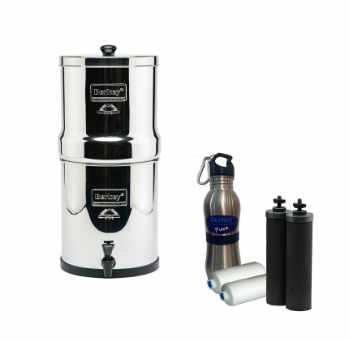The U.S. Agriculture Department approved the sale of chicken made from animal cells to the public on Wednesday.
Two California companies will offer this “lab-grown” meat to the nation’s restaurants and eventually, it will be available for consumers, but that’s probably several years away.
Upside Foods and Good Meat are the two firms that had been competing to be the first to sell meat that doesn’t come from processed animals, now referred to as “cell-cultivated” or “cultured” meat grown entirely in a laboratory.
Advocates claim the new product saves time, and money, and is good for the environment without all of the animal waste.
“Instead of all of that land and all of that water that’s used to feed all of these animals that are slaughtered, we can do it in a different way,” said Josh Tetrick, co-founder, and chief executive of Eat Just, which operates Good Meat.
***Please sign up for CBN Newsletters and download the CBN News app to ensure you keep receiving the latest news from a distinctly Christian perspective.***
Both companies received approvals following federal inspections to sell meat and poultry in the U.S. The U.S. Food and Drug Administration deemed the products safe to eat after meeting FDA requirements. A manufacturing company called JOINN Biologics, which works with Good Meat, was also cleared to make the products.
Cultivated meat is grown in steel tanks, using cells that come from a living animal, a fertilized egg, or a special bank of stored cells. In Upside’s case, it comes out in large sheets that are then formed into shapes like chicken cutlets and sausages. Good Meat, which already sells cultivated meat in Singapore, the first country to allow it, turns masses of chicken cells into cutlets, nuggets, shredded meat, and satays.
The companies plan to serve the new food first in exclusive restaurants.
Company officials were quick to contend that the products are actually meat, not substitutes like the Impossible Burger or offerings from Beyond Meat, which are made from plant proteins and other ingredients.
And consumers are probably going to see even more of this “cell-cultivated” meat in the future. Globally, more than 150 companies are focusing on growing meat from cells, not only chicken but pork, lamb, fish, and beef.
Visitors to Upside’s Emeryville, California facility were treated Tuesday to tasting a cultivated chicken filet in a white wine butter sauce with tomatoes, capers, and green onions.
The finished chicken breast product was slightly paler than the grocery store version, Associated Press Writer Jonel Aleccia noted. Otherwise, it looked, cooked, smelled, and tasted like any other pan-fried poultry.
“The most common response we get is, ‘Oh, it tastes like chicken,'” said Amy Chen, Upside’s chief operating officer.
She acknowledged, however, that many consumers are skeptical, even squeamish, about the thought of eating chicken grown from cells.
“We call it the ‘ick factor,'” she said.
The sentiment was echoed in a recent poll conducted by The Associated Press-NORC Center for Public Affairs Research. Half of U.S. adults said they are unlikely to try meat grown using cells from animals. When asked to choose from a list of reasons for their reluctance, most who said they’d be unlikely to try it said “It just sounds weird.” About half said they don’t think it would be safe.
But once people understand how the meat is made, they’re more accepting, Chen said. And once they taste it, they’re usually sold.
However, it could take a few years before consumers see the products in more restaurants and seven to 10 years before they hit the wider market, said Sebastian Bohn, who specializes in cell-based foods at CRB, a Missouri firm that designs and builds facilities for pharmaceutical, biotech and food companies.
But the question remains, can enough of this chicken substitute be produced to meet demand?
Both Upside and Good Meat emphasized that the initial production will be limited. The Emeryville facility can produce up to 50,000 pounds of cultivated meat products a year, though the goal is to expand to 400,000 pounds per year, Upside officials said. Good Meat officials wouldn’t estimate a production goal.
By comparison, the U.S. produces about 50 billion pounds of real chicken per year.
The cost could be another sticking point with consumers. The price is expected to mirror high-end organic chicken, which sells for up to $20 per pound.
Is Lab-Grown Meat Really Good for the Environment? Some Scientists Are Already Saying ‘No’
Meanwhile, some scientists are already arguing against the notion that lab-grown meat is better for the environment. They allege it’s actually worse.
In May, researchers at the University of California-Davis released a preprint of a not yet peer-reviewed study that “found that lab-grown or “cultivated” meat’s environmental impact is likely to be “orders of magnitude” higher than retail beef based on current and near-term production methods.”
“If companies are having to purify growth media to pharmaceutical levels, it uses more resources, which then increases global warming potential,” said lead author and doctoral graduate Derrick Risner, UC Davis Department of Food Science and Technology. “If this product continues to be produced using the “pharma” approach, it’s going to be worse for the environment and more expensive than conventional beef production.”

The remainder of this article is available in its entirety at CBN

